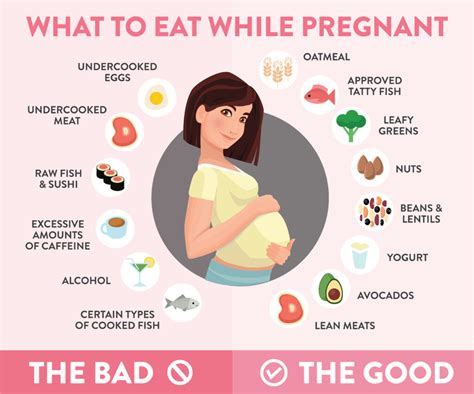Introduction
Congratulations on reaching the 6-week mark of your pregnancy! As you embark on this exciting journey, it’s crucial to prioritize your health and well-being by making mindful dietary choices. Certain foods pose potential risks to both you and your developing baby during this delicate time.

6 Foods to Avoid at 6 Weeks Pregnant
1. Raw or Undercooked Fish and Shellfish
- Why it matters: Raw fish and shellfish may contain harmful bacteria or parasites that can cause infections like Listeria and Salmonella, potentially leading to premature birth or other complications.
- Examples: Sushi, sashimi, raw oysters, clams, mussels
2. Raw or Undercooked Eggs
- Why it matters: Uncooked eggs can harbor Salmonella bacteria, which can lead to food poisoning and other health risks for both you and your baby.
- Examples: Runny eggs, homemade mayonnaise, raw cookie dough
3. Unpasteurized Milk and Cheese
- Why it matters: Unpasteurized milk and cheese may contain bacteria that can cause serious infections, including Listeria.
- Examples: Fresh milk straight from the cow, certain soft cheeses like Brie and Camembert
4. Raw or Sprouted Seeds
- Why it matters: Sprouts may contain harmful bacteria like E. coli, which can lead to serious infections.
- Examples: Alfalfa sprouts, clover sprouts, radish sprouts
5. Liver
- Why it matters: Liver contains high levels of vitamin A, which can be harmful to the developing fetus in excessive amounts.
- Examples: Beef liver, chicken liver, pate
6. Alcohol
- Why it matters: Alcohol can cross the placenta and reach your developing baby, potentially causing fetal alcohol syndrome or other developmental problems.
- Examples: Wine, beer, spirits
6 Foods to Enjoy at 6 Weeks Pregnant
1. Fruits and Vegetables
- Benefits: Rich in vitamins, minerals, and fiber essential for both you and your baby.
- Examples: Berries, citrus fruits, leafy greens, broccoli
2. Lean Protein
- Benefits: Provides essential amino acids for fetal growth and development.
- Examples: Lean meats, poultry, fish, beans, lentils
3. Whole Grains
- Benefits: Rich in fiber, B vitamins, and other nutrients crucial for a healthy pregnancy.
- Examples: Brown rice, quinoa, oatmeal
4. Dairy Products (Pasteurized)
- Benefits: Excellent source of calcium, protein, and vitamin D for both you and your baby.
- Examples: Milk, yogurt, cheese
5. Nuts and Seeds
- Benefits: Rich in protein, fiber, and healthy fats.
- Examples: Almonds, walnuts, chia seeds, flaxseeds
6. Iron-Rich Foods
- Benefits: Essential for red blood cell production and fetal growth.
- Examples: Spinach, red meat, fish, beans
Common Mistakes to Avoid
- Assuming all fish is safe: Remember to avoid raw or undercooked fish and shellfish.
- Consuming excessive amounts of caffeine: Limit caffeine intake to less than 200mg per day.
- Skipping prenatal vitamins: Prenatal vitamins are essential for補充ntal vitamins are essential for supplementing your diet with essential nutrients.
- Smoking or using tobacco products: Smoking can seriously harm both you and your baby.
- Eating too much junk food: Focus on consuming nutrient-rich foods instead of processed foods.
FAQs
1. Can I eat sushi at 6 weeks pregnant?
No, it’s best to avoid raw fish, including sushi, at this stage of pregnancy.
2. How much caffeine is safe to consume?
Limit caffeine intake to less than 200mg per day.
3. What are the signs of food poisoning?
Symptoms may include nausea, vomiting, diarrhea, abdominal pain, and fever.
4. Can I take prenatal vitamins over the counter?
Yes, most prenatal vitamins are available over the counter. However, it’s always best to consult with your healthcare provider before taking any supplements.
5. Why is it important to avoid unpasteurized milk and cheese?
Unpasteurized milk and cheese may contain bacteria that can cause serious infections.
6. What if I accidentally eat something I shouldn’t?
If you accidentally consume a food on the “avoid” list, it’s important to monitor yourself for any symptoms of illness. Contact your healthcare provider if you have any concerns.
Conclusion
Making informed dietary choices is crucial during your 6-week pregnancy. By avoiding potentially harmful foods and opting for nutrient-rich options, you can support both your health and the wellbeing of your developing baby. Remember to consult with your healthcare provider for personalized guidance and to address any specific dietary concerns.












